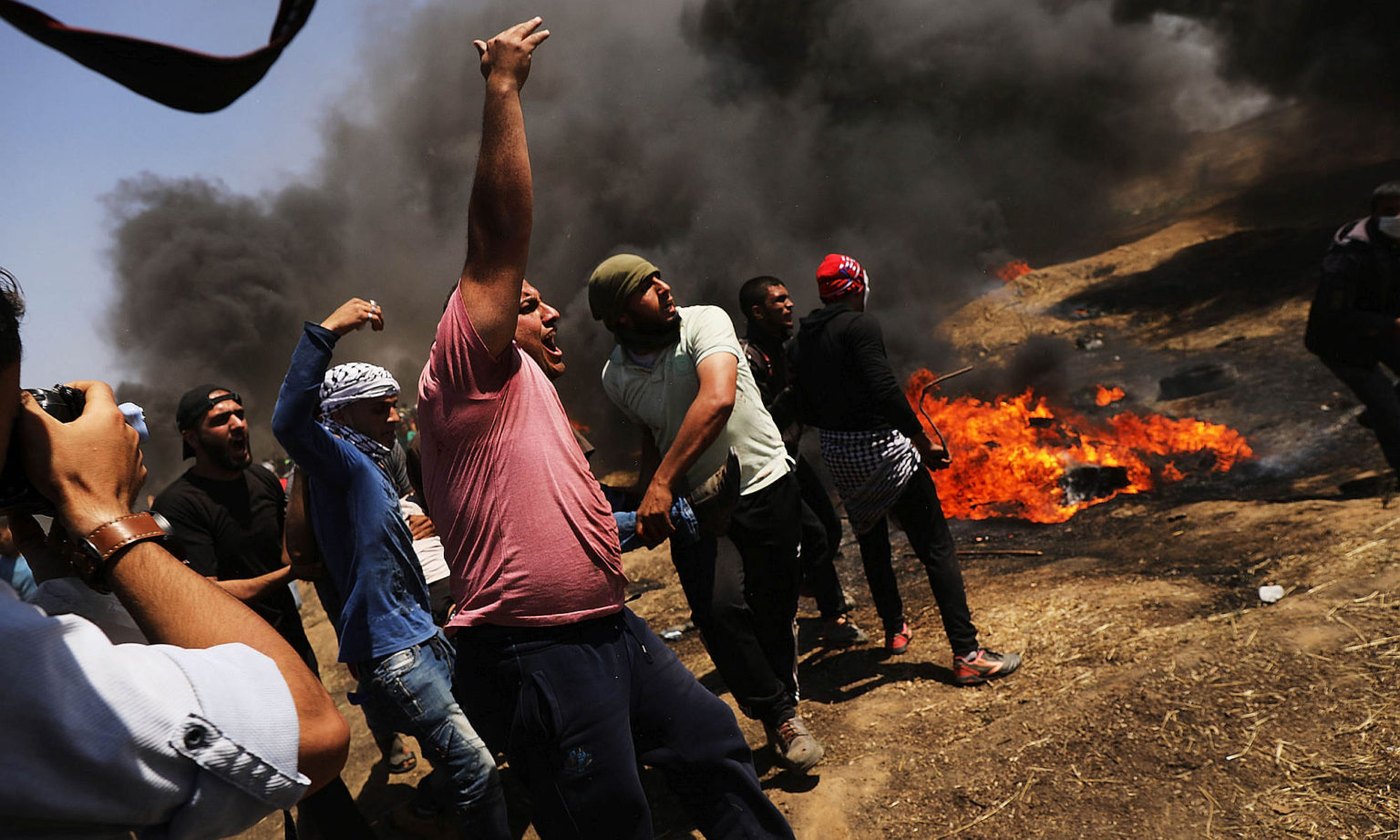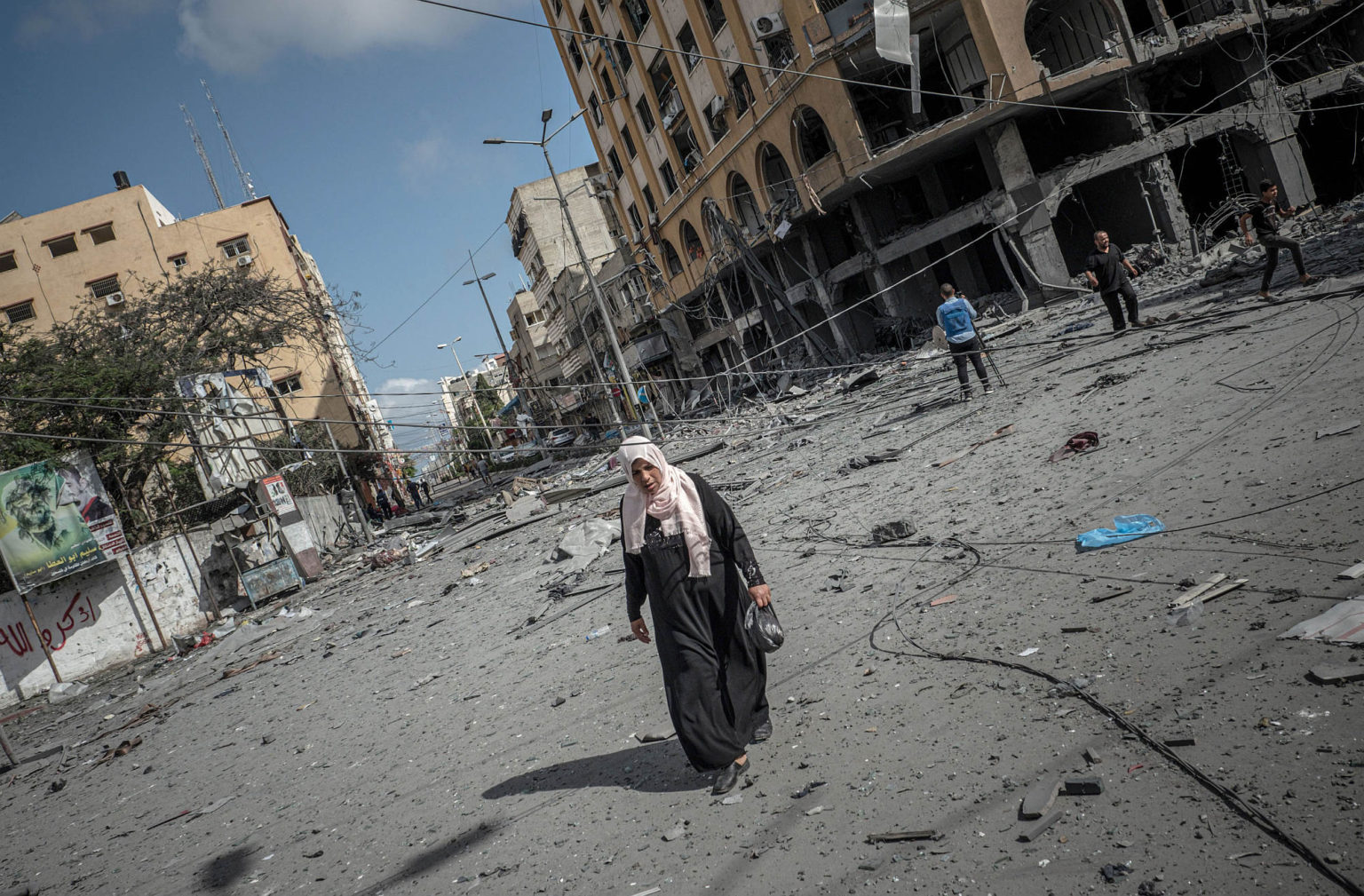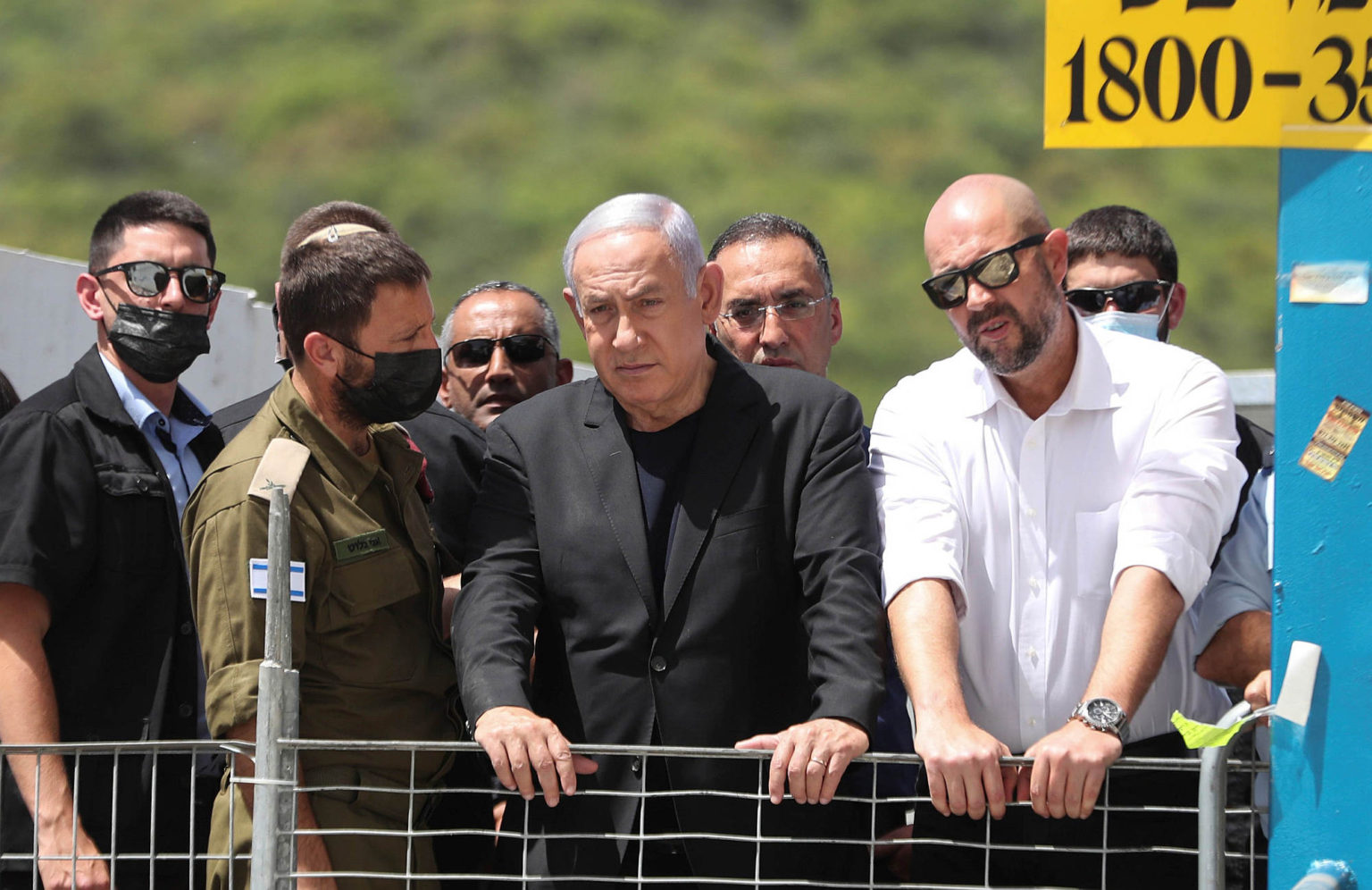
Long-read
The Palestinian tragedy
Hamas has turned a national liberation movement into a neverending jihad against Israel.
Want to read spiked ad-free? Become a spiked supporter.
What is the driving force behind the recent tragic conflict across Israel, the West Bank and the Gaza Strip? It might seem an obvious question, even if solutions are far from clear, but it is one to which relatively few give serious thought.
It is a particularly important question given that the latest conflagration is significantly different in nature to the other outbreaks of violence in Israel in recent years. After all, Israel has had many clashes with the Gaza enclave since 2006, but this is the first time it has been accompanied by widespread inter-communal violence inside Israel, with Palestinians and Israelis involved in numerous bloody skirmishes in Israeli cities with mixed populations. This is a serious escalation of an already intensely violent conflict.
Yet rather than try to understand what exactly is going on, and untangle the threads of this knotted conflict, it is once again being presented as a simple clash of good against evil.
Israelis are frequently presented as the new Nazis, supporters of genocide, advocates of apartheid and child-killers. The fact that the typical Israeli might be a regular human being, who is no more flawed than the average person, is effaced in this worldview. And the possibility that Israelis might have good reasons to fear for their lives is also ignored by too many self-proclaimed advocates for Palestine.
But it is no more helpful in our understanding of this conflict to assume contemporary Palestinian grievances are simply motivated by age-old anti-Semitism. Those who take this view see Palestinian resentment towards Israel as at best irrational. This misses the fact that there are genuine and varying reasons why the average Palestinian – as opposed to the political activist – might feel animosity towards Israel. In the West Bank, for example, freedom of movement is often severely curtailed by the Israel Defence Forces (IDF). And in Gaza Israel withdrew its forces in 2005, but Israel continues to control Gaza’s airspace, as well as most of its land borders – although it should be noted that Egypt controls the land border with the adjoining Sinai peninsula.
Those who see one side or the other as cardboard cut-out versions of good and evil, rather than flesh-and-blood human beings, generally exhibit what psychologists call ‘confirmation bias’. Whatever happens in Israel simply confirms their pre-existing view of one side as the evildoer and the other as the victim. Such a perspective is not only incapable of grasping the dynamics of the current conflict — it also refuses to grasp the depth of the profound tragedy that is now unfolding.
Fortunately, there are some serious analysts who are trying to grapple with what has driven the recent bloody round of fighting. The most common explanation is that it was triggered by a dispute over whether Arab families should be evicted from property claimed by Jewish owners in the predominantly Palestinian Sheikh Jarrah area of East Jerusalem. This is not a particularly convincing explanation. No doubt the prospective evictions exacerbated pre-existing tensions, but this dispute has been going on for decades.
The best way to understand what is going on is to try to understand the significant changes that both Palestinian and Israeli politics have undergone in recent years. The most important development is that Islamism has finally eclipsed nationalism on the Palestinian side. From the late 1960s until recently, Palestinian nationalism – in the form of the Palestine Liberation Organisation (PLO) and its main component, Fatah – enjoyed the political loyalty of a large majority of Palestinians. Since the 2000s this has changed. Palestinian support has increasingly become more evenly split between the PLO, which was prominent in the West Bank, and Hamas (the Arab acronym for the Islamic Resistance Movement) in Gaza.
In this context, the decision by Mahmoud Abbas, the West Bank Palestinian leader, to suspend regional elections in late April took on an extreme importance. The 85-year-old Abbas, one of the founders of Fatah, postponed the first elections since 2006 on the pretext of a dispute over voting in Israeli-annexed East Jerusalem. Yet there can be little doubt that his real fear was that he would lose the elections to Hamas.

From Hamas’s point of view, Abbas’ decision meant it no longer had anything to lose in a conflict with the PLO over Palestinian loyalty. The Islamist movement could present itself as the true representatives of the Palestinian people, not just in Gaza but in the West Bank, too. Provoking a battle with Israel would provide the perfect way for Hamas to sideline an ageing and corrupt PLO.
Given it was Ramadan in April and May, which meant many Muslims would be in and around the Old City of Jerusalem in the evenings to break their fast, the conditions for Hamas’s move against the PLO were particularly favourable. It meant it was in an ideal position to play its trump card, and present itself as the guardian of the Muslim holy places in Jerusalem – the third holiest city in Islam after Mecca and Medina in Saudi Arabia. Add to this the land dispute over Sheikh Jarrah, and tensions were already running high.
The actions of Israeli extremists, intent on conflict with Palestinians, made matters even worse. It is not possible to be certain what exactly happened in the skirmishes between Palestinian activists, police and far-right Israeli groups in Jerusalem earlier this month, but it is clear that Hamas militants had every interest in promoting a conflict with Israel. They did this most clearly by fighting in and around the Al-Aqsa mosque, on what Jews refer to as the Temple Mount (Har Habayit in Hebrew) and Muslims call the Noble Sanctuary (Haram al-Sharif in Arabic). In doing so, Hamas succeeded in portraying itself as the prime guardian of the Muslim holy places in Jerusalem. This all meant that when Hamas decided to launch rockets from Gaza into Israel earlier this month, it did so to enhance its claim to be the leading organisation fighting Israel.
Hamas replacing the PLO as Palestinians’ political leadership is of enormous political significance. It is not just a transfer of loyalty from one organisation to another. It is also a transfer of loyalty to a fundamentally different type of organisation. The PLO, for all its faults, can be roughly defined as a secular nationalist organisation. Although the 1968 PLO charter states that ‘the Palestinian people are an integral part of the Arab nation’, it is essentially the constitution of what would then have been called a Third World nationalist movement. In other words it defined the organisation primarily as a movement for Palestinian national self-determination.
In contrast, the Hamas Covenant of 1988 is that of an entirely different type of organisation. As would be expected of a self-styled Islamic Resistance Movement, it frames its objectives in primarily Islamic rather than national terms. The covenant starts with the standard Islamic phrase ‘In The Name Of The Most Merciful Allah’. It then goes on to present Hamas as the Palestinian wing of global Islamism rather than as a movement for national liberation. As the document says: ‘The Movement is but one squadron that should be supported by more and more squadrons from this vast Arab and Islamic world, until the enemy is vanquished and Allah’s victory is realised.’
Anyone who supports freedom should baulk at what is contained in the Covenant of 1988. At its mildest, it seems to be suggesting a theocratic state which only allows other religions to exist under its domination – ‘Under the wing of Islam, it is possible for the followers of the three religions – Islam, Christianity and Judaism – to coexist in peace and quiet with each other. Peace and quiet would not be possible except under the wing of Islam.’ It then goes on to state that ‘it is the duty of the followers of other religions to stop disputing the sovereignty of Islam in this region’.
At other times it seems to be advocating outright genocide against Jews. For example, it approvingly quotes the prophet Muhammed saying:
‘The Day of Judgement will not come about until Muslims fight the Jews (killing the Jews), when the Jew will hide behind stones and trees. The stones and trees will say “O Muslims, O Abdulla, there is a Jew behind me, come and kill him”. Only the Gharkad tree would not do that because it is one of the trees of the Jews.’
Those who accuse Israel of genocide or behaving like the Nazis – an accusation that betrays ignorance of both contemporary Israel and Nazi Germany – would do well to consider such passages. Whatever criticisms one might have of Israel’s actions in Gaza, no official Israeli policy document has ever advocated the annihilation of Palestinians or anything like it. Yet from the perspective of the Hamas charter, the slogan ‘Free Palestine’ could easily be read as meaning not that the Palestinian people should be free but that Palestine should be free of Jews.

For the sake of accuracy, it should be noted that Hamas has, to an extent, reframed its language in nationalist rather than religious terms over the years. For example, rather than talk of ‘Jews’ it now prefers to talk of ‘the occupation entity’ or the ‘Zionist establishment’. And rather than talk about ‘jihad’ (holy war) it prefers to talk of ‘resistance’.
But there are good reasons to doubt the sincerity of this reframing. It seems more likely that Hamas has simply tried to use more coded language for consumption outside of its support base. Take the case of Fathi Hamad, who was the Hamas interior minister until 2014, and has been a member of its politburo since 2017. In July 2019, he released a video imploring Palestinians to kill Jews. His statement was condemned by the PLO. Hamas distanced itself from it. Yet Hamad did not lose his position within the organisation. And this month he called on Palestinians in Jerusalem to decapitate Jews. In his public address covered on Al-Aqsa TV (Hamas-Gaza), he declared:
‘People of Jerusalem, we want you to cut off the heads of the Jews with knives. With your hand, cut their artery from here. A knife costs five shekels [about £1.08]. Buy a knife, sharpen it, put it there, and just cut off [their heads]. It costs just five shekels. With those five shekels, you will humiliate the Jewish state.’
The evidence suggests that Hamas has not fundamentally changed its character over the years. It has just become better at using coded language to express it. Hamas remains essentially part of a regional Islamist movement rather than an organisation committed to the national self-determination of the Palestinians. Its goal is to brutally subjugate those who do not adhere to the most fundamentalist forms of Islam rather than to free the Palestinian people.
From that perspective the recent round of bloody conflict should not be simply seen as a battle between Israel and the Palestinians. It is rather a conflict between Israel as a nation state and Hamas as a representative of a transnational Islamist movement. The Palestinians are of course the greater victims in the conflict, and many of them no doubt support Hamas, but it is wrong to see the clashes as a battle between two competing national claims. The Palestinians do have a right to self-determination – as of course does Israel – but that is not what Hamas is fighting for.
Looking at the political transformation of the Palestinian side helps explain the dynamics of recent events, but it is not the entire story. It is also important to consider what is happening on the Israeli side of the conflict.
Israel has been politically characterised, in recent years, by stasis. It is completely lacking in genuine political leadership. There have been four elections in two years, yet the question of who should govern remains unresolved. Benjamin Netanyahu, now only the acting prime minister, is just about holding on to office in what seems like a desperate attempt to avoid being jailed for corruption. Yet attempts to replace him have so far failed.
Indeed, the haplessness of the Israeli political class was recently illustrated by a tragedy that had nothing to do with the Palestinians. In late April this year, a reported 45 people were killed in a stampede during the Lag B’Omer religious festival at Mount Meron in the Galilee, in northern Israel. The tragedy was eminently predictable, according to Magen David Adom (the Red Shield of David, Israel’s equivalent of the Red Cross). Yet no Israeli political leader was able or prepared to take preventative actions.
Israel’s political stasis has also created the conditions in which the far right can gain ground. The fact that, earlier this month, hundreds of young activists from the extremist Lehava (Flame) could march towards Jerusalem’s old city chanting ‘mavet la-Aravim’ (death to the Arabs) was certain to inflame tensions with Palestinians. It is notable that Lehava has the support of Itamar Ben-Gvir, who was elected a member of the Israeli parliament earlier this year.
Thankfully, the sentiments expressed by the likes of Lehava are not widely supported (although there is scope for them to grow if the political vacuum is not addressed). Israelis are typically characterised by a strong sense of existential fear – which has a rational basis – rather than hatred towards the Palestinians.
The current Israeli government, characterised as it is by a lack of leadership, is not executing some kind of cunning masterplan to divide and conquer the Palestinians. On the contrary, it is responding and reacting to events, often haplessly. It has let itself be led into a conflict in which it can be viewed as the aggressor and Hamas can be viewed as the protector of innocent Palestinian civilians.
The current conflict in the region is a tragedy for both sides. Israel’s right to self-defence should certainly be recognised, but it is naturally only human to have empathy for Palestinians when they suffer as a result of the conflict. It is also vital that Palestinian rights are fully respected in any political settlement.
However, the popular view that this is a straightforward conflict between an Israeli Goliath versus a Palestinian David is misplaced. The battle at present is between the Israeli nation state and the transnational Islamist movement. Israel is no doubt better armed than Hamas, but that is only part of the story. Hamas has the support of regional backers, such as Iran, Qatar and Turkey, as well as the Islamist movement more generally. And while Israel has its flaws, it is neither a theocratic state nor is it, despite the frequent claims to the contrary, intent on genocide in the way that Hamas seems to be.
This seems to have escaped self-proclaimed anti-racists in the West. Their unquestioning support for a Palestine, ‘from the river [Jordan] to the [Mediterranean] sea’, is effectively an endorsement of the Hamas programme of theocracy and perhaps even genocide.
In the late 19th century, leading German Social Democrats astutely referred to anti-Semitism as ‘the socialism of fools’. They argued that, despite its sometimes radical sheen, anti-Semitism was a thoroughly reactionary movement.
In a similar way, those Western radicals and leftists who give succour to the Hamas worldview are guilty of pursuing the anti-imperialism of fools. They might think they are being radical and humanistic, but they are helping to propagate the worldview of a thoroughly reactionary political movement.
Daniel Ben-Ami is a writer based in London.
Pictures by: Getty Images.
Who funds spiked? You do
We are funded by you. And in this era of cancel culture and advertiser boycotts, we rely on your donations more than ever. Seventy per cent of our revenue comes from our readers’ donations – the vast majority giving just £5 per month. If you make a regular donation – of £5 a month or £50 a year – you can become a and enjoy:
–Ad-free reading
–Exclusive events
–Access to our comments section
It’s the best way to keep spiked going – and growing. Thank you!




Comments
Want to join the conversation?
Only spiked supporters and patrons, who donate regularly to us, can comment on our articles.